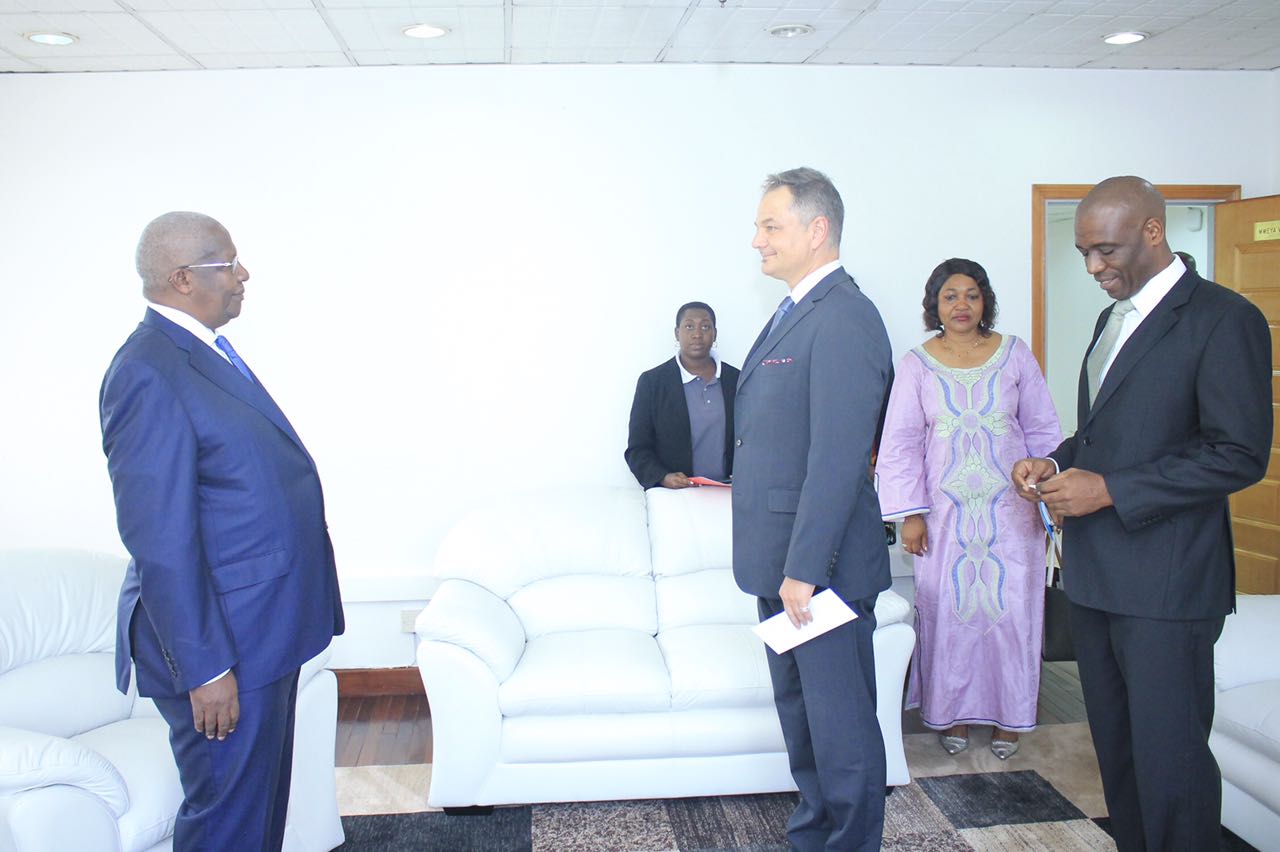Distinguished diplomat Alain Sibenaler has started his term as the Country Representative of the United Nations Population Fund (UNFPA) to Uganda.
Sibenaler, a national of Luxembourg has worked in the UN system since 1996 and left Sri Lanka in January 2017.
Today, Friday 10th March 2017, the UNFPA boss presented his credentials to the Minister of Foreign Affairs Sam Kutesa, expressing his pleasure at the new post by appreciating the tremendous support the Government of Uganda had extended to his predecessors. Mr Sibenaler further expressed gratitude to H.E the president on his commitment to different aspects of family planning and selected reproductive rights.
Hon. Kutesa welcomed Mr Sibenaler to Uganda and said that UNFPA has distinguished itself as a useful partner to Uganda. He stated that Uganda’s young population and large numbers, whilst recognized as an asset, raise their own challenges. He hoped that the partnership with UNFPA would focus on taking advantage of the roadmap offered in the AU Agenda 2063 theme of Harnessing the Demographic Dividend.
Mr Sibenaler agreed, stating that Uganda is one of the few countries where the link between the peace dividend and the demographic dividend are apparent.
He holds various degrees from the University of Montepellier III, the University of Paris and University of Stellenbosch specializing in Migrant Labor, Political Science and Management. He has previously served as UNFPA Country Representative in Sri Lanka and Cameroon, UNFPA Country Director in the Maldives, and as Deputy Representative in Afghanistan.

UNFPA and other stakeholders has prioritised implementation of safe motherhood interventions that aim to not only reduce maternal mortality and morbidity but also make existing sexual and reproductive health services more available, supportive and friendly to adolescents.
United Nations Population Fund (UNFPA) funds numerous multibillion projects in Uganda. Their $13m (about Shs46.8b) Uganda Reproductive Health Voucher Project has seen a reduction in maternal deaths per month registered in districts where free antenatal and postnatal healthcare was introduced by the Health ministry in both government and private health facilities since September 2015.
Services, including all the four Antenatal Care Services, elimination of mother-to-child transmission of HIV services, HIV/Aids testing and counselling, safe skilled delivery and postnatal care are covered by the voucher. It assists pregnant women living in poor rural and disadvantaged areas to access skilled care.
The mothers, who are identified by the Village Health Teams (VHTS), are able to access the services from any of the contracted Health centres III and IV as well as both private and public hospitals after buying a Shs4,000 voucher.
The primary beneficiaries are the poor and vulnerable pregnant mothers residing within the catchment areas of the contracted health facilities. The mothers are expected to be able to reach the facilities in less than two hours. The contracted service providers and surrounding communities are the secondary beneficiaries.
UNFPA is also committed to ending the Aids epidemic by 2030. This target will be reached only with a concerted and strengthened focus on prevention.











